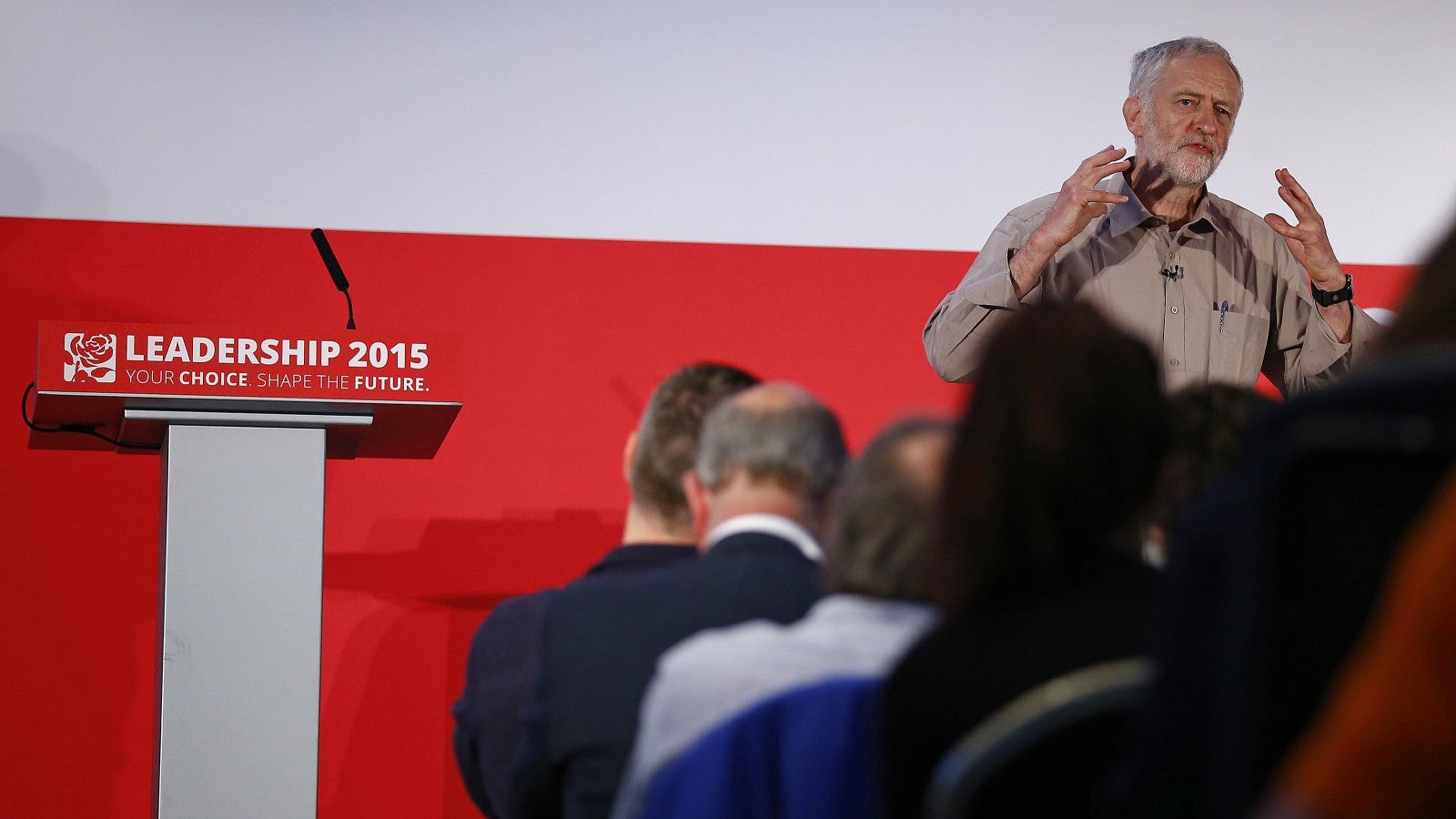The UK’s opposition parties are moving left, and it could lose them the next election
The UK won’t hold another general election until 2020, but the opposition parties are searching their souls to work out if they can win it, and in what possible configuration.


The UK won’t hold another general election until 2020, but the opposition parties are searching their souls to work out if they can win it, and in what possible configuration.
For the largest of them, Labour, this has turned into an existential question: Where on the political spectrum should the party be? After Labour lost support and seats in May’s election, giving the Conservatives a clear mandate to govern, leader Ed Miliband immediately stepped down. But Miliband, who had battled his brother David for the leadership on a platform that moved the party back towards its left-wing roots, left behind a power vacuum, and increasing confusion about where the party should head.
Enter Jeremy Corbyn. He is 66 and has been an MP for half his life, spending much of that time on the outer-left fringes of the party. He is backed by trade unions, was a fierce opponent of the Iraq war, and wants to see an end to the government’s economic austerity measures.
The clear, principled stance is working: an early poll this week gave Corbyn 43% of first preference votes, well ahead of Andy Burnham, a former health secretary, with 26%. Yvette Cooper and Liz Kendall, the other contenders, gained 20% and 10% respectively. But many think the lurch to the left is political suicide. The right-wing Telegraph newspaper suggested voters wishing to “destroy the Labour Party” should register for membership, and vote Corbyn.
Tony Blair, the former Labour prime minister, pointed to history to make Labour see the folly of its course. After losing the 1979 election, he told Progress, a think-tank, the party “persuaded itself that the reason why the country had voted for Margaret Thatcher was because they wanted a really left-wing Labour Party. This is what I call the Theory that the Electorate is Stupid.”
Blair, who contends that elections are won on the center ground, said that those whose hearts told them to vote Corbyn needed a “transplant”.
Jitters about a left-wing swing aren’t confined to Labour. The Liberal Democrats had for years before May’s election played the role of smaller but significant third party in Westminster. In 2005, they gained more purchase, entering into coalition with the Conservatives. Their leader, Nick Clegg, became deputy prime minister.
But the experience almost destroyed them. Seen as buckling to Conservative demands on the most ideological topics—like tuition fees for university students—the party was abandoned by its base and lost 49 seats. Someone needs to lead the Lib Dems back from the “wilderness” after Clegg’s resignation. But Tim Farron’s election last week as his replacement is worrying those who want the party to remain anchored near the center of British politics. Farron also leans left. One of his first actions was to propose to Labour a joint opposition to welfare cuts.
Meanwhile, the election of 56 Scottish National Party members of parliament means that some of the most strident new leftist voices also have a strong bias towards Scottish issues—as well as a large dose of idealism.
The Conservatives, unfettered by any coalition deal, are merrily enacting the policies, like welfare reform and cuts to renewables subsidies, that they could only hint at previously. And the center ground of UK politics—that arena of winners, as Blair would have it—is looking very empty.